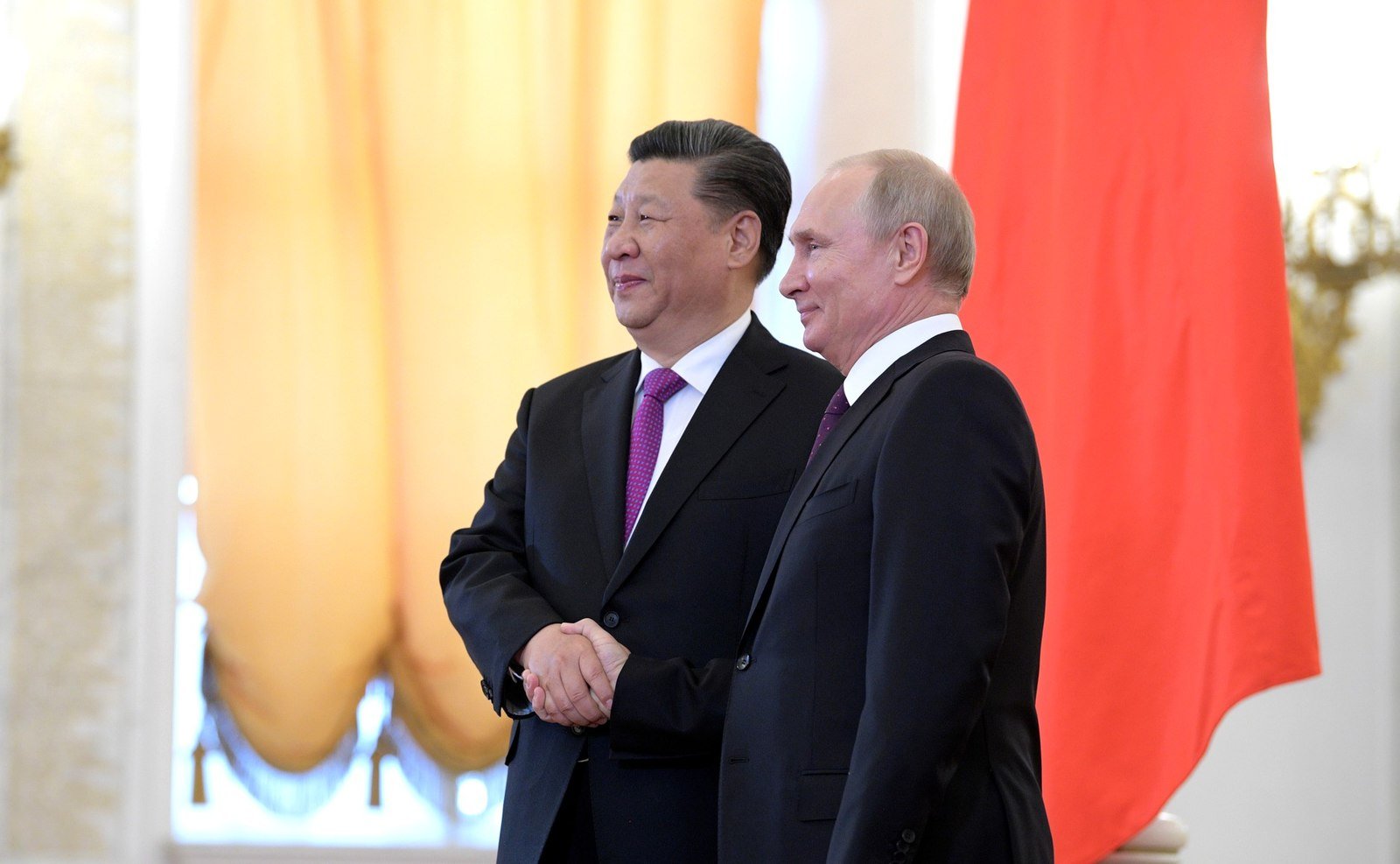
When Russia’s invasion of Ukraine stalled early on, there was a moment of optimism that things might come to a quick end. Pundits imagined that the Russian people, disgusted by what was being done in their name and angered by the sight of their children returning home in body bags, would take to the streets and overthrow Vladimir Putin and his oligarch minions who have preyed upon them for decades.
Or perhaps, as Lindsey Graham suggested, senior Russian military officers, forced into a war of folly by an egomaniacal leader, would step in. Or, surely, as sanctions against Russia continued to grow, Chinese President Xi Jinping would rise to the occasion and force his Russian ally to step back before the damage to the global economic order became irreparable.
It was all an illusion, as it turns out. The Russian people – except perhaps for the younger, urban intelligentsia – appear to have rallied behind their president. And no one should be surprised; Russians have been weaned on oppression at the hands of tsars and commissars alike for literally centuries. Suffering is in their DNA; as is fear and resentment of the West that now animates Putin’s rising popularity.
The notion that Russia’s military leaders might grasp the nettle and take matters into their own hands was similarly delusional. Even if there were a tight-knit cabal of military leaders who decided the moment had come to take Putin down, he is as well protected as any leader in the world by his Presidential Security Service of long-time loyalists. A master of the use of poison to dispatch his adversaries, Putin understands that physical distance is an essential defense against pandemic and putsch alike.
And then there is China. Three weeks before Russia invaded Ukraine, President Xi Jinping hosted Vladimir Putin in Beijing, where together they declared that the American Century had run its course. No longer, they asserted, would Russia or China live under the thumb of American dictates, or be bound by the web of international laws and treaties that limited their right to assert dominance over their regions of the world. For Russia, this meant the right to reassert its control over its “near abroad,” those territories that have defined its periphery dating back to the pre-World War I Russian Empire and into the Soviet era. For China, the clear references were to Hong Kong, Taiwan, and the South China Sea.
Xi and Putin intended for their deepening alliance and declaration of a New World Order to provide a new axis around which authoritarian regimes and populist political movements across the globe could rally. There is no small irony that in their declaration of victory over liberal democracy, Xi and Putin felt that they had to give lip service to democracy as “a universal human value” over and over again.
The leaders of two nations that have each been led for at least a thousand years by tsars and emperors and commissars – and in Russia’s case today, an emerging totalitarian dictator – who have never offered their citizenry a voice in who would lead them, felt that they had to assert their democratic bona fides. “The two sides note,” their Joint Statement claimed, “that Russia and China as world powers with rich cultural and historical heritage have long-standing traditions of democracy, which rely on thousand-years of experience of development, broad popular support and consideration of the needs and interests of citizens.”
But those rhetorical flourishes were quickly rendered moot as the brutal aggression of Putin’s forces soon exposed the dark underbelly of authoritarian power: the interests of citizens be damned, there are no rules and few guardrails that can contain an autocrat armed with nuclear weapons.
For Western and Chinese analysts alike, Xi Jinping loomed as the only viable restraint on Vladimir Putin’s ambitions. Two weeks into the war, a number of Chinese analysts appealed to Xi to walk away from Putin in the name of China’s long-term economic interests. Like many in the western media, those commentators saw a quick end to the war, and no outcome for Putin in which Russia could survive as a great power. In their view, Xi had just a few weeks to make his choice, and should he fail to walk away from Putin and declare China’s commitment to the world order, the consequences for China would be dire.
But those few weeks have now passed, and it has become clear that Xi is not going to walk back support for his partnership with Putin, but rather will let the war play out.
Perhaps the consequences for the global economy will be significant, but it has become clear that Xi is watching events unfold with a different strategic calculus. One has to believe that when Xi chose to deepen his partnership with Putin – a man who had already been at war with Ukraine for the better part of a decade – he had already contemplated both the benefits and the risks of how events might unfold.
It is easy to imagine that Xi believed that if Russia succeeded in swiftly toppling the regime in Ukraine, while NATO cowered in their barracks, it would expose the Achilles heel of the vaunted U.S. global network of military alliances: only countries with explicit security guarantees could rely on U.S. protection. With Putin having exposed this vulnerability, China would have expanded latitude to assert its will over Taiwan and the South China Sea.
However, Xi probably also thought through the consequences should Putin fail in his war and may have seen opportunities in that outcome for China as well. In the worst case, should Russia face crippling sanctions and isolation from global trade networks and financial systems, Russia would quickly become dependent on China as its main trading partner.
Russia is a leading global supplier of many strategic natural resources – far beyond just oil and gas – and few things could offer greater advantages to its manufacturing colossus than having monopsony control over those resources.
The opposite of a monopoly, where a single seller can dictate the price of a product, is a monopsony. These are situations were a single purchaser can assert pricing power over the sellers of a product. For China, the implications of having monopsony power over Russia with respect to critical natural resources is that China would have the leverage to dictate the prices it would be willing pay for Russian commodities – likely at steep discounts below world market prices. Importantly, China would also have greater latitude to require that payment be in renminbi (Chinese currency) rather than dollars.
Clearly, the world would push back against China playing both sides in the West’s economic war with Russia. Xi is undertaking a delicate balancing act. China needs to sustain its access to Russia’s natural resources – effectively circumventing Western sanctions – while not facing sanctions of its own that might limit its ability to sell manufactured goods into the U.S. and European markets.
This week, U.S. Treasury Secretary Janet Yellen warned China of dire consequences, mirroring the words of Chinese analysts during the early days of the war, yet Xi may well conclude that the West would lack the stomach to try to isolate China as it has Russia, particularly after the war comes to an end and the world is looking to move on. After all, Russia is a very small economy in the scheme of things – which is why the Western alliance and so many global companies have been willing to act in concert – while China is a dominant global economic power, a critical part of global supply chains, and a key driver of global corporate profitability. More importantly, playing a high stakes game of chicken with the West would likely serve Xi’s political interests well at home, a consideration that would give him room to maneuver this time around.
As Putin’s war grinds through its second month, it is increasingly evident that the worst may well be yet to come. None of the easy outs that pundits imagined early on seem likely to emerge, and Xi Jinping appears to have no interest in being the West’s savior. At this point it is not even clear which outcome Xi actually prefers: that Putin win his war or lose it.
As it stands, it looks like either situation could hold opportunities for China. Should Putin emerge victorious in Ukraine, Xi will feel empowered to act on his long-standing ambition to rejoin Taiwan with the mainland. If Putin fails, Xi may effectively own Russia’s rich trove of natural resources, enabling China to take one more step toward its goal of surpassing the United States as the world’s dominant economy.
Perhaps preference has nothing to do with it, as Xi cannot control what will happen in Ukraine. For Xi, simply seeing the opportunities that either outcome might offer may be all that matters.

David Paul
David is President of Fiscal Strategies Group, and was previously Managing Director of Public Financial Management, a public and project finance subsidiary of Hongkong and Shanghai Bank. He also served as the Vice Provost of Drexel University, and founded and served as CEO of Mathforum.com, a mathematics and math education Internet company and virtual community that is now part of the National Council of Teachers of Mathematics.






